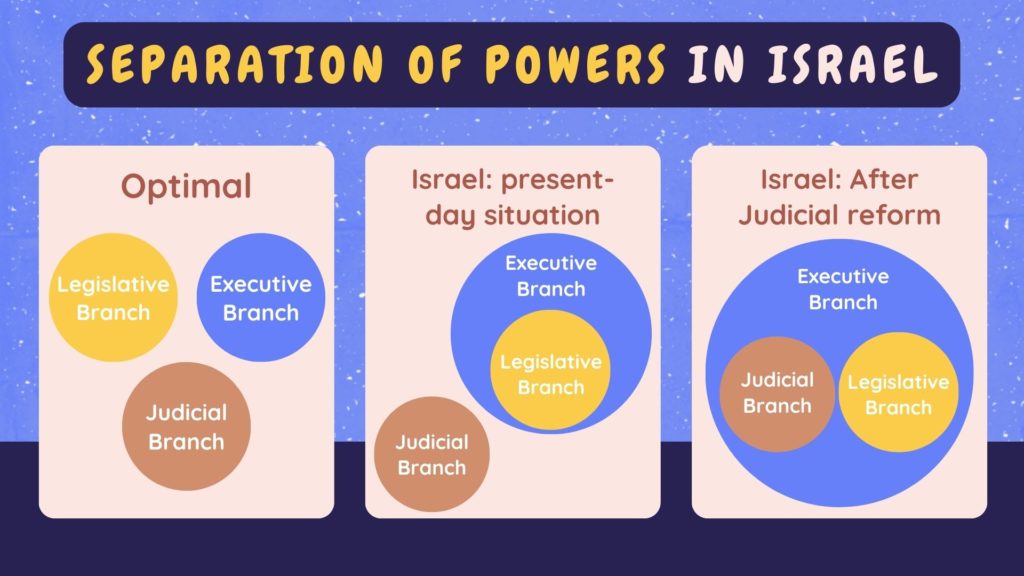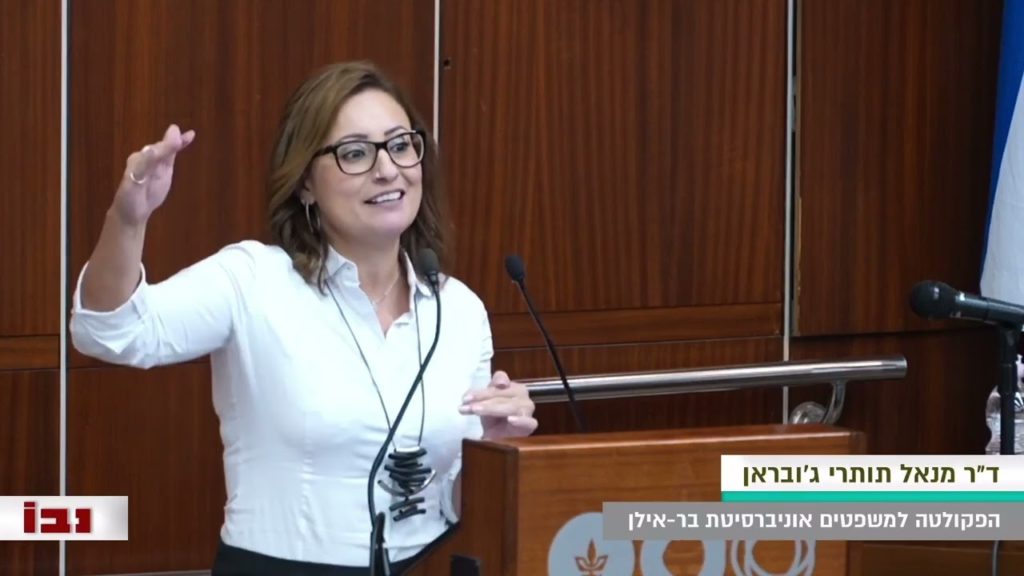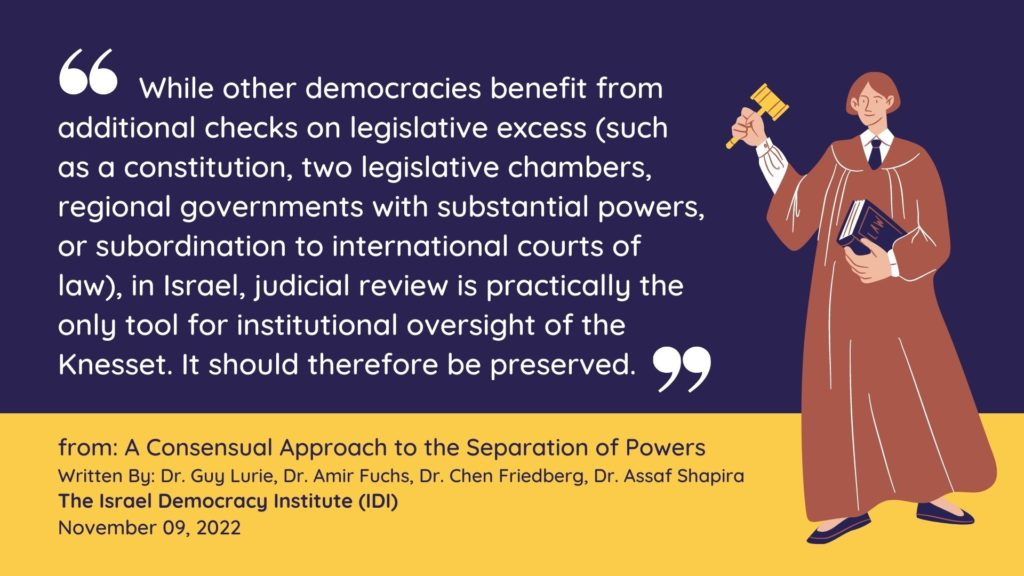Spotlight on SFP Lawyer Graduates in a Time of “Judicial Reform”
With a political crisis of a historical scale looming over us, and a tumultuous election for the national bar association, the School for Peace has founded a new graduates forum: the SFP Jewish-Palestinian lawyers forum. Simultaneously, we have launched a novel and one of a kind advanced course for lawyers that tackles issues in human rights law, led by Attorney Michael Sfard.
The judicial reform sits at the heart of the current political uproar in Israel, sparking protests and many debates. We have recently been invited by the German Bar Association to explain the ramifications of the reform.
Dr. Manal Totry-Jubran, senior lecturer at the Bar-Ilan University Faculty of Law and veteran SFP lecturer, presented the consequences of the reform to the German Bar Association, emphasizing the effect it will have on the Palestinian citizens of Israel. Dr. Totry-Jubran shed light on the flimsy foundations of Israeli democracy, explaining how the political move is bound to bring it toppling down. She argued that this is why it is crucial that we protect the autonomy of the court, as it is the last (though not always effective) protector of minority rights.
Attorney Michael Sfard gave a lecture on practicing human rights law within the occupied territory, in which he cast a light on the dark side of Israeli democracy: occupation and military rule. Micheal started by expounding the complex legal structures within the occupied territories, that are based on martial law and military hegemony. The system is bifurcated and separatist: a civil legal system for Israeli-Jewish citizens, and a military legal system for Palestinian inhabitants. He showcased the difficulties this creates, pointing out, for example, that his clients are prohibited from visiting his office in Tel Aviv, due to limitations on entry passes into Israel.
He also emphasized the central role that the supreme court plays within this system. The supreme court has overriding and final authority over the military system, and its record in wielding it is spotty and ambivalent. On the one hand, the supreme court has passed verdicts that have limited military action, and upheld the rights of Palestinian inhabitants: such as safeguarding the right to representation and hearing in cases of house demolition. But on the other hand, the court has also permitted the perpetuation of wrongdoing, such as house demolition, land usurpation, children arrests and other human rights violations, on what Israeli security officials call “tactical grounds.”
Attorney Sfard is an SFP graduate who, after participating in an SFP dialogue facilitation course at age 22, was inspired to dedicate his life to human rights law. Today, he is one of Israel’s leading human rights lawyers.
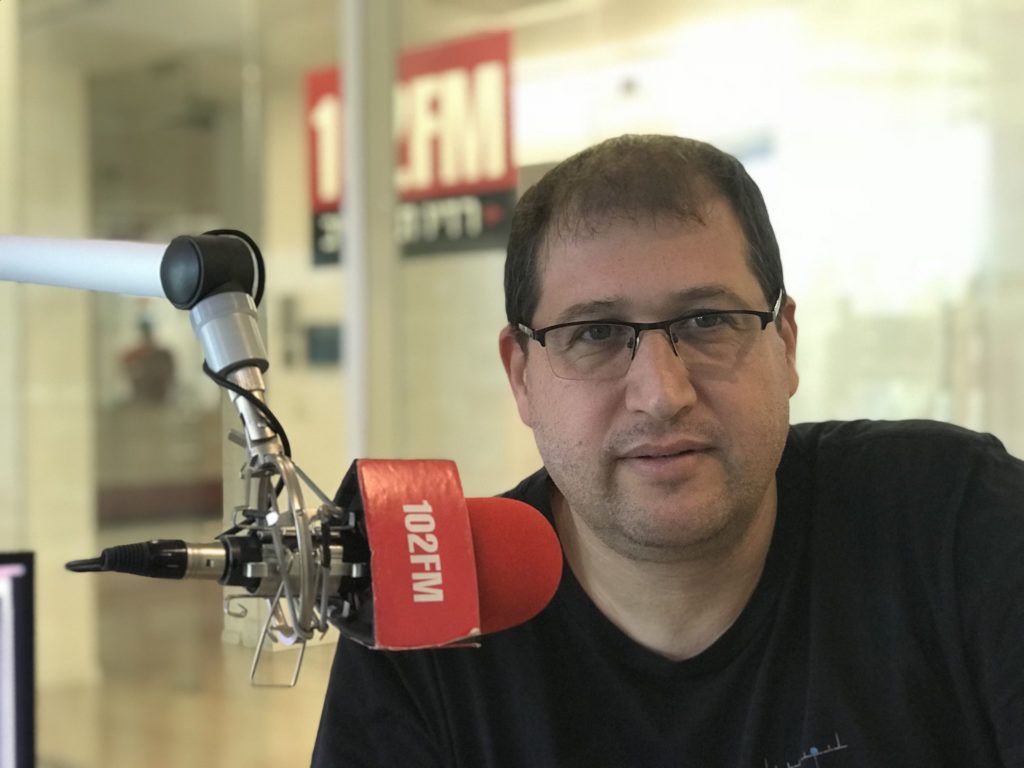
Michael Sfard, photo by 102fm, wikimedia, CC BY-SA 4.0
Whether incidentally or not, we here at the School for Peace are more active today in the field of law than ever before.
In May 2023, we founded the SFP Jewish-Palestinian lawyers forum, led by Nava Sonnenschein and Mohammed Abu Sneineh. The forum consists of graduates of our “Agents of Change in the Field of Law” courses throughout the years. One of the first projects the forum took on is influencing the election for the Israel Bar Association. The election is usually a mundane event that does not garner much attention. But this year’s election was highly turbulent, both because of the current national crisis, and because the leading candidate (who had previously held the office) was recently indicted for bribery and misconduct (and was eventually found guilty only on a minor offense). After an impressive public campaign, another candidate was elected who is affiliated with the resistance to the current judicial reform.
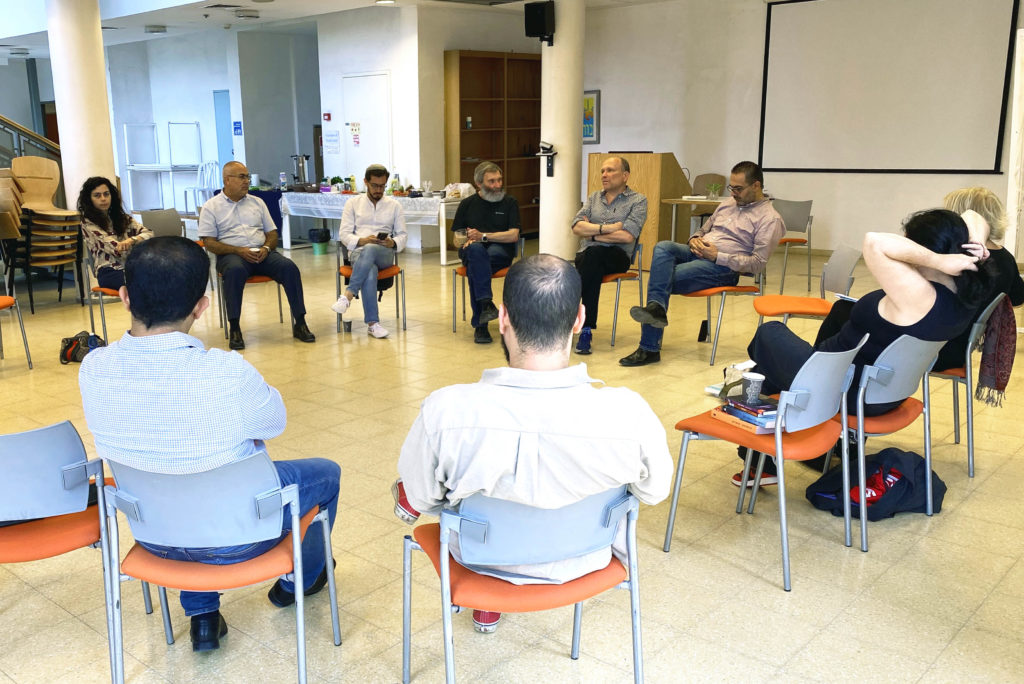
First meeting of the SFP lawyers’ forum
May also saw the start of a new and unique advanced issues in human rights law course, led by Attorney Michael Sfard. The intended audience are lawyers who work to defend human rights or wish to do so, and want to deepen their understanding of the moral and strategic dilemmas of the practice. Each session is dedicated to a certain topic, and includes a group discussion of a real-life case.
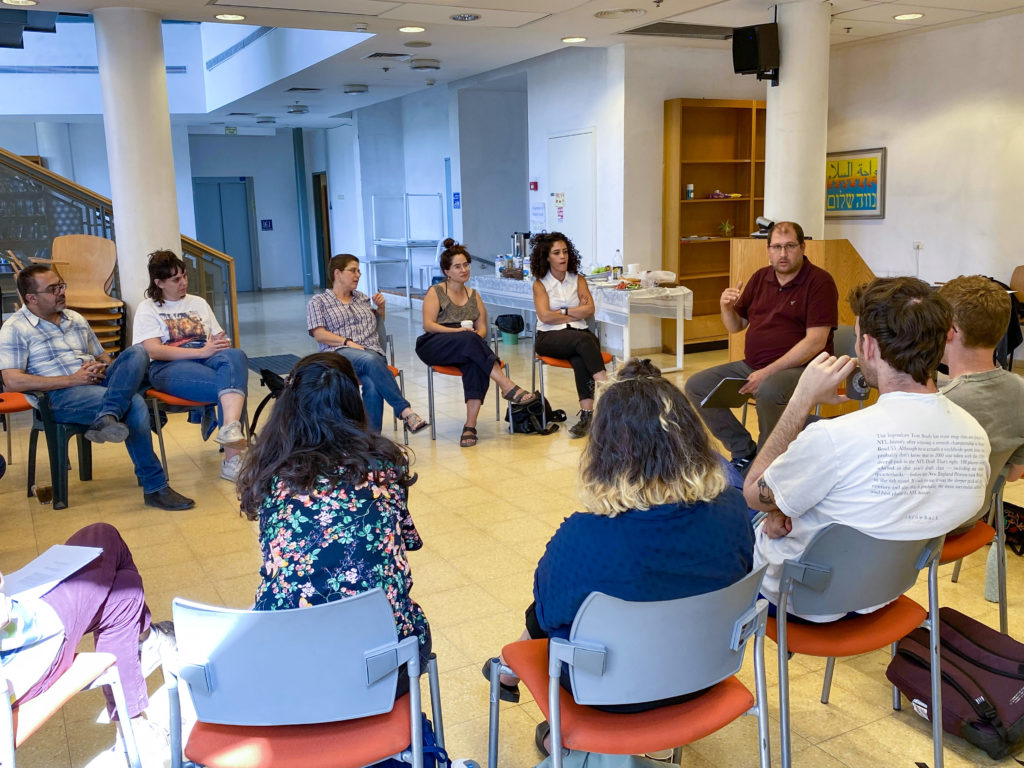
Michael Sfard (in dark red shirt) leading the program: Advanced Issues in Human Rights Law Practice
Even while the entire legal system is under attack, we at the School for Peace insist on furthering, deepening, and bolstering legal work that promotes human rights, equality between Palestinians and Jews, and the end of Israeli military rule over Palestinian civilian population.
**

